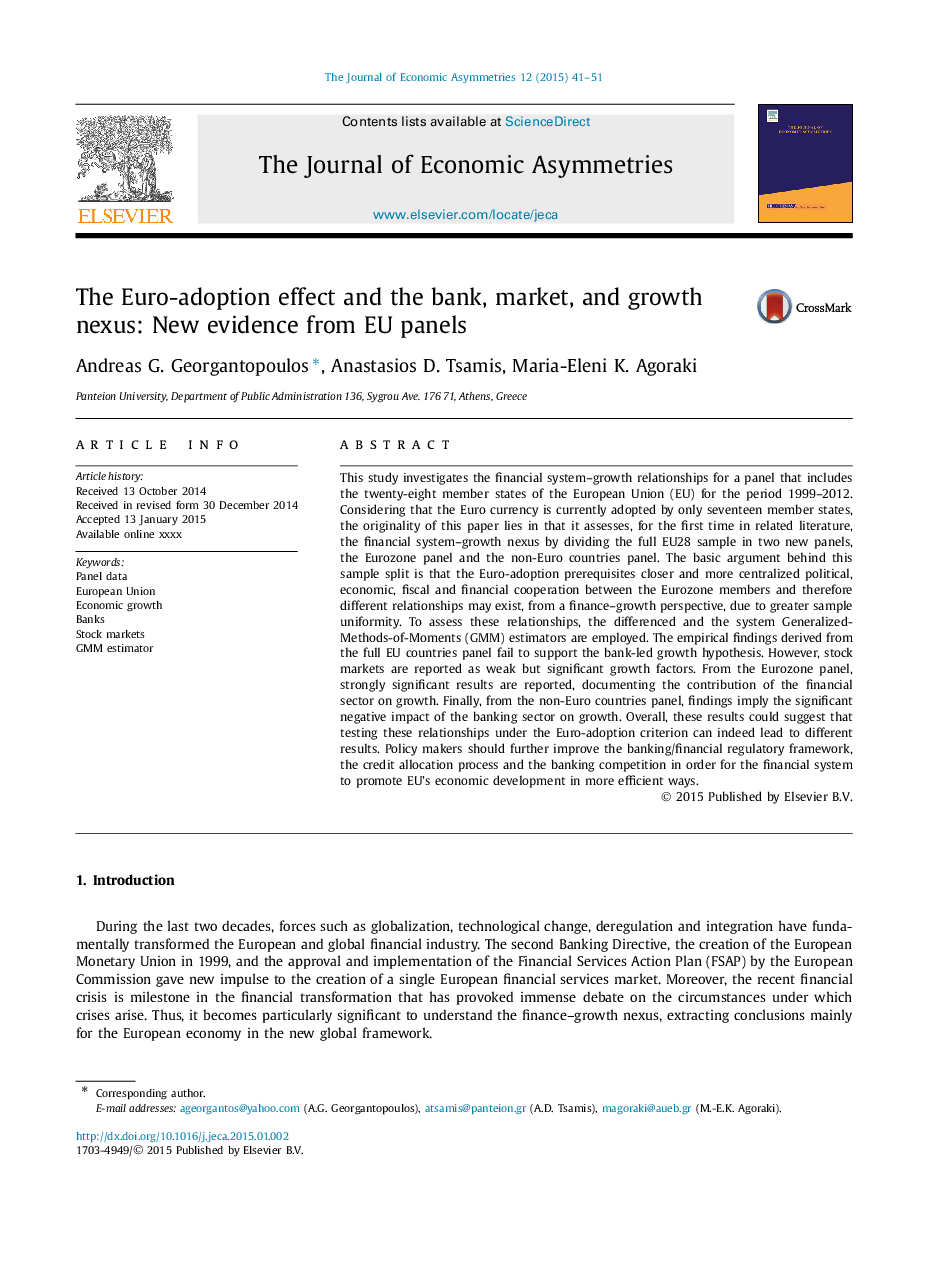| Article ID | Journal | Published Year | Pages | File Type |
|---|---|---|---|---|
| 5097749 | The Journal of Economic Asymmetries | 2015 | 11 Pages |
Abstract
This study investigates the financial system-growth relationships for a panel that includes the twenty-eight member states of the European Union (EU) for the period 1999-2012. Considering that the Euro currency is currently adopted by only seventeen member states, the originality of this paper lies in that it assesses, for the first time in related literature, the financial system-growth nexus by dividing the full EU28 sample in two new panels, the Eurozone panel and the non-Euro countries panel. The basic argument behind this sample split is that the Euro-adoption prerequisites closer and more centralized political, economic, fiscal and financial cooperation between the Eurozone members and therefore different relationships may exist, from a finance-growth perspective, due to greater sample uniformity. To assess these relationships, the differenced and the system Generalized-Methods-of-Moments (GMM) estimators are employed. The empirical findings derived from the full EU countries panel fail to support the bank-led growth hypothesis. However, stock markets are reported as weak but significant growth factors. From the Eurozone panel, strongly significant results are reported, documenting the contribution of the financial sector on growth. Finally, from the non-Euro countries panel, findings imply the significant negative impact of the banking sector on growth. Overall, these results could suggest that testing these relationships under the Euro-adoption criterion can indeed lead to different results. Policy makers should further improve the banking/financial regulatory framework, the credit allocation process and the banking competition in order for the financial system to promote EU's economic development in more efficient ways.
Related Topics
Social Sciences and Humanities
Economics, Econometrics and Finance
Economics and Econometrics
Authors
Andreas G. Georgantopoulos, Anastasios D. Tsamis, Maria-Eleni K. Agoraki,
